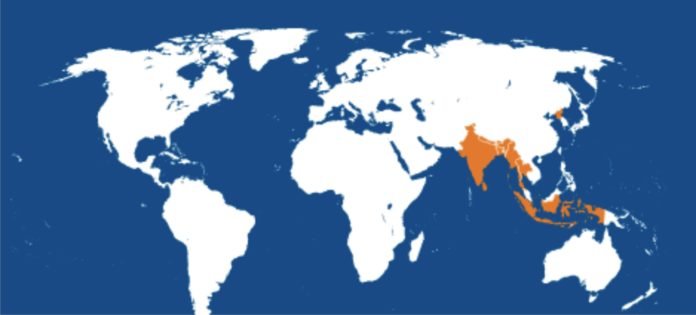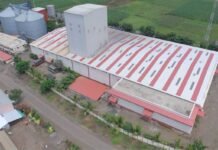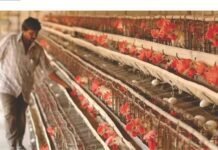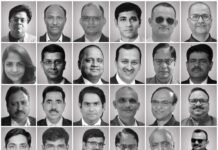In September, Novus inaugurated its new office in Chennai and invited THINK GRAIN THINK FEED to interview their global team including Francois Fraudeau, President and Chief Executive Officer, w. Scott Hine, Vice President – Product & Solutions and Chief Innovation Officer, Dave Dowell – COO, Dr. Vaibhav Nagpal – Senior Director & CCO, Asia and Neeraj Kumar Srivastava, Managing Director, Novus South Central Asia.
Along with interviewing the global team, Think Grain Think Feed had the opportunity to interact with Asia heads and also some of the important customers from Eastern part of the country. Following are the excerpts from the interview:
You have been associated with Novus nearly from its inception and the company is operating in many countries around the world. Kindly share the major challenges that the company has faced during this expansion process.
Francois Fraudeau: There are many aspects to consider with any expansion, but perhaps the most important is understanding the opportunities available in the country that you want to serve and how best to utilize those opportunities. Of course, there can be vast cultural differences but, ultimately, if you hire the right people with the right skills – as we’ve done here in India — those individuals can make the transition very easy. Finding customers has never been a challenge for Novus as most in the industry are seeking innovation and differentiation.
Would you please highlight some recent research findings which the company has under taken? Are there some new innovations with an application in near future?
Francois Fraudeau: Novus has invested significant resources in relation to antibiotic use in animal agriculture. For the last 15 years, we have been working rigorously on products for the European market where regulators have put a complete ban on antibiotics as a feed additive. We expect the U.S. will follow suite. While the decision on antibiotic use in India is pending, Novus is prepared to offer solutions if India too moves in the direction of antibiotic-free production.


Five years down the line what kind of outlook does one expect for the company. In which areas would it like to put on more focus?
Francois Fraudeau: Novus is essentially creating a balanced portfolio between the methionine business and the specialty business for poultry, swine, livestock and aquaculture. Methionine is a very important amino acid for nearly all species. Novus’s specialty business, which includes enzymes, organic trace minerals, eubiotics and feed quality products, is becoming a very significant part of our portfolio. Five years from now, we expect to see a more balanced share of our business coming from the specialty business unit. Apart from that, we are also marketing human supplements, though this business is currently confined to North America. We hope to bring this side of the company to the global human supplement market within the next five years.
Dave Dowell, you have been with Novus for more than a decade now. How do you feel the way feed industry has been evolved over the years?
Dave Dowell: From an innovation perspective, the production and marketing of enzymes and organic trace minerals has certainly evolved. Novus caters to the demand for enzymes, especially proteases and phytases, at a global level. Feed safety and traceability are undoubtedly two extremely important aspects of the feed business today and we don’t see that changing. Products related to microbial load and mycotoxin management are also of interest to our customers.


Neeraj Srivastava: Product registration differs from country to country, as each has its own laws and regulations. In India there is the advantage of good supply chain and that helps in marketing our product. Apart from that there is a fairly open regulatory policy in place within the country. Also, customers in India are quite receptive to new and unique technologies and Novus understands well the challenges our customers here encounter. For these reasons, the access to Indian market is fairly quick. For example, India was the first country to market a new organic trace mineral complex product that we launched last year. Launching a new product can take months to years in other countries. It is a matter of pride that Novus has developed one of the fastest acting phytases in recent years (CIBENZA® PHYTAVERSE®). It took four years for Novus to enter the phytase market in a big way, initially in South Central Asia, and now globally.
Could you please share the impact of last year’s reorganization of regional structure of Novus in Asia?
Vaibhav Nagpal: Until last year Asia was divided into two regions: North East Asia (NEA) and South East Asia Pacific (SEAP). India was part of SEAP. However, since countries in South Asia are growing on a fast tract, Novus decided to approach South Asia as a separate region. We now have a separate technical and marketing team specifically concentrating on this area. In fact, we are already observing that by making South Asia a separate entity, business seems to be growing faster. Thanks to added resources, we can more quickly respond to our customers in this area and we have a better understanding of the challenges they face; our customers are really seeing the benefits.
It has been a decade since you have established the Indian subsidiary of Novus team in India. What are the major changes that you have observed during these years?
Vaibhav Nagpal: We better understand the Indian feed market and the problems customers face. The customer requirements vary from country to country. Understanding customer needs so that we can anticipate future needs is paramount. This knowledge guides our research efforts and the products we innovate.


A lot has been talked about the poultry industry, what about Dairy and Aqua?
Dave Dowell: Aqua feed in India has a huge potential to grow. This industry is developing at a fast pace like poultry industry. For the dairy feed industry, the market is fragmented; the size of the average herd is invariably very small, and things are changing slowly as related to consolidation of these smaller herds into larger, high-producing herds. Novus has a dedicated dairy team with sound technical knowledge who can train the small dairy farmers with respect to products and technologies and show them how Novus products can add significant value to their production. Novus has been very successful in areas where high-producing dairy cattle are managed, and this knowledge can easily be transferred to any of our customers around the world.
Where do you see the Indian feed market 10 years down the line?
Francois Fraudeau: The feed market in India is predicted to go bullish and the reason is simple: The industry and the country is going through a big transformation due to a growing demand for animal protein like meat, chicken, eggs and fish. This demand is supported by the affordability of these products due to increasing incomes. So, I see a lot of opportunity and support for Indian feed industry in the next 10 years.















